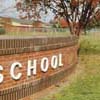Expanded Civic Engagement Opportunities For High School Students Result From New Law

Number 47
August 2014
Assembly Bill (AB) 1817, recently signed into law, provides high school students a greater role in the voter registration process and related elections activities. At the same time, the bill creates the possibility of controversies around election-related discourse on campus.
Under existing state and federal law, a person who is at least 17 years old and meets all voter eligibility requirements may submit an affidavit of registration, which is deemed effective to register the voter upon his or her eighteenth birthday. Students who are already 18 may also register to vote.
Previously, Education Code section 49040 designated the last two full weeks in April as "high school voter weeks" during which time deputy registrars could enter high schools and register eligible students or staff members in designated areas. AB 1817 amends section 49040 by adding the last two weeks in September as periods for voter registration on campus and recharacterizing these periods as "high school voter education weeks." Now, high school students and staff members have a total of four weeks throughout the school year where they may register to vote on campus.
Further, AB 1817 builds upon the intent to increase voter registration by tapping high school students to promote voter registration on their campuses. Adding Education Code section 49041, AB 1817 allows the administrator of a high school to appoint enrolled students as "voter outreach coordinators." The newly-created position allows students to organize election-related activities on campus (subject to administrator approval), such as voter registration drives, mock elections, debates, and other election-related activities. Thus, AB 1817 signals the Legislature's intent to encourage voter registration by allowing high school students greater opportunities to educate fellow classmates and staff members on relevant election issues.
AB 1817 contemplates increased amounts of political discourse on campus, which naturally may touch on sensitive or "hot button" topics given the context of a particular election. Consequently, the election-related activities may give rise to issues involving the First Amendment and protection of speech, the creation of public forums and questions of where the activities may take place on campus, and privacy or technology-related issues depending on the platform for the discourse.
For questions regarding issues involving AB 1817 and political activities, please contact one of our eight offices located statewide. You can also visit our website, follow us on Facebook or Twitter, or download our Client News Brief App.
August 2014
Assembly Bill (AB) 1817, recently signed into law, provides high school students a greater role in the voter registration process and related elections activities. At the same time, the bill creates the possibility of controversies around election-related discourse on campus.
Under existing state and federal law, a person who is at least 17 years old and meets all voter eligibility requirements may submit an affidavit of registration, which is deemed effective to register the voter upon his or her eighteenth birthday. Students who are already 18 may also register to vote.
Previously, Education Code section 49040 designated the last two full weeks in April as "high school voter weeks" during which time deputy registrars could enter high schools and register eligible students or staff members in designated areas. AB 1817 amends section 49040 by adding the last two weeks in September as periods for voter registration on campus and recharacterizing these periods as "high school voter education weeks." Now, high school students and staff members have a total of four weeks throughout the school year where they may register to vote on campus.
Further, AB 1817 builds upon the intent to increase voter registration by tapping high school students to promote voter registration on their campuses. Adding Education Code section 49041, AB 1817 allows the administrator of a high school to appoint enrolled students as "voter outreach coordinators." The newly-created position allows students to organize election-related activities on campus (subject to administrator approval), such as voter registration drives, mock elections, debates, and other election-related activities. Thus, AB 1817 signals the Legislature's intent to encourage voter registration by allowing high school students greater opportunities to educate fellow classmates and staff members on relevant election issues.
AB 1817 contemplates increased amounts of political discourse on campus, which naturally may touch on sensitive or "hot button" topics given the context of a particular election. Consequently, the election-related activities may give rise to issues involving the First Amendment and protection of speech, the creation of public forums and questions of where the activities may take place on campus, and privacy or technology-related issues depending on the platform for the discourse.
For questions regarding issues involving AB 1817 and political activities, please contact one of our eight offices located statewide. You can also visit our website, follow us on Facebook or Twitter, or download our Client News Brief App.
As the information contained herein is necessarily general, its application to a particular set of facts and circumstances may vary. For this reason, this News Brief does not constitute legal advice. We recommend that you consult with your counsel prior to acting on the information contained herein.






